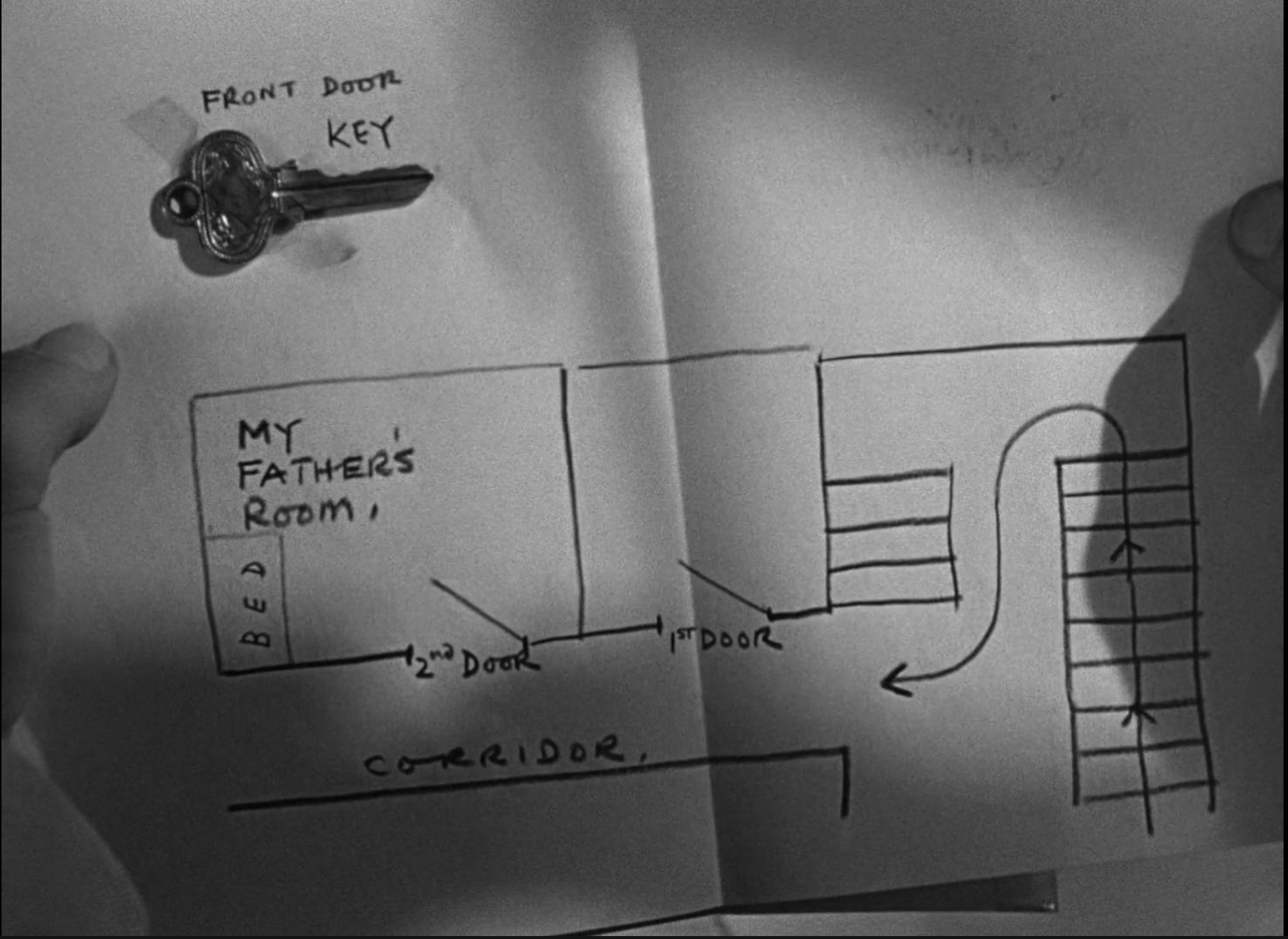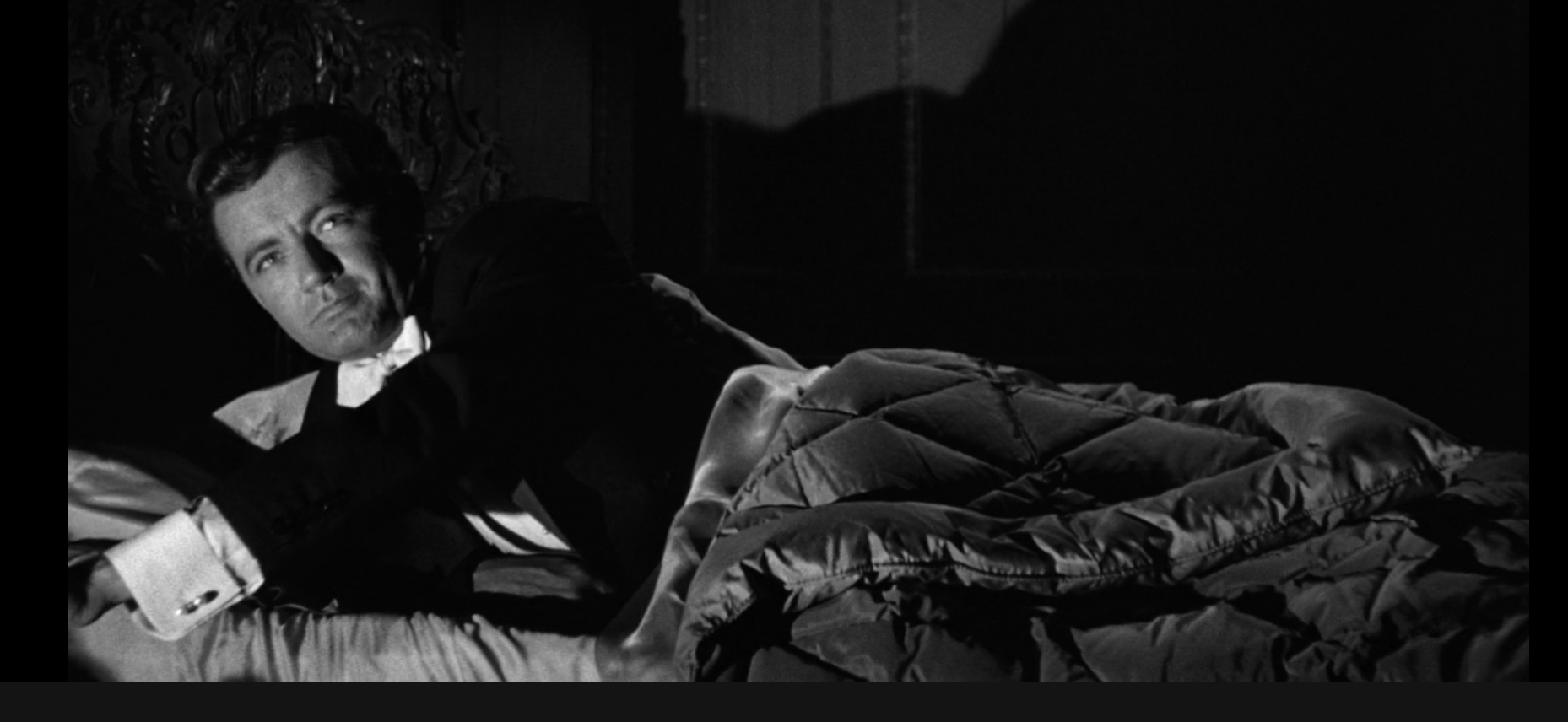Strangers on a Train (1951)
Newly armed with a Criterion Channel subscription for the year, it’s back to the Hitchcock mines. I’ve seen most of the big hits (including Notorious twice without realising until a bit into the second time) but the guy made a lot of movies. Strangers on a Train has a killer premise, what if two people had a murder they wanted done, with no connection to each other, and they decided to swap murders to leave behind no connection and no motive. The only risk really is that one of the people doesn’t actually want to do it, and the other is such a remorseless psycho that he basically does it same day.
Guy Haines is a tennis player with a wife that won’t let him get divorced, and Bruno - complete with a tie clip that spells out his name - has a father with lots of money who just won’t hurry up and die. Guy kind of nervously participates in the conversation and, on finishing, Bruno basically goes straight to the funfair where Guy’s wife Miriam is hanging out with two dudes, follows her through the tunnel of love out into a lake onto an island and strangles her to death. Abrupt. I thought he’d maybe plan a little bit, but that’s not how we operate. He goes back to Guy and says, hey, I’ve done it, you’re up, here’s a key to my dad’s house and a very crude, childlike map of how to go in and murder him.

Guy wants to marry a senator’s daughter, who isn’t much use or very memorable, but she has a sister Barbara who is the 1950s equivalent of a true crime podcast fanatic and has all the best lines and puts the whole thing together. (She’s also played by Alfred Hitchcock’s daughter). In a bizarre scene later on, Bruno is demonstrating to an old lady how to strangle someone to death, by strangling her to death, and he catches sight of Barbara. She reminds him of Miriam - they both have glasses, you see - and so he comes quite close to murdering this old lady in the middle of a swanky party. He gets away with it by passing out and making him, somehow, the victim.
The crux of this thing is trying to make you believe that Guy, who knows exactly who murdered his wife and why, won’t just go to the police and tell them that. I think it just about pulls it off, the main justification being, if you guys didn’t plan this together, why would he do it? That’s an insane thing to do. You must be in on it. Nobody really suspects Guy of having done it, so the movie plays up a little bit of the temptation he could have had to actually murder Bruno’s dad and seal the whole pact. It was never on the cards, really, though, even if they try and do a little fake tension by having him in fact follow (successfully) the map from up above into the bedroom only to find… Bruno, under the covers, fully dressed in formal wear, expecting this for some reason.

Bruno realises that Guy may not be into spontaneously murdering a stranger, so he decides to wind things up by planting Guy’s lighter at the murder scene. This is several days later, after the police have seen it, and lots of fairground-goers have gone to have a gawk, so not the best plan in the world, but it’s sufficient to freak Guy out.
Guy, however, has a tennis match to play first, and has to get it over with very quickly. With life and death on the line, one might think he’d throw the game to get it over with as quickly as possible - he can’t skip it, that would be too suspicious - but instead he decides to play really well and win the match. It works perfectly, and he should probably consider doing it for the rest of his tennis career.
They meet at the end in the fairground, which, I’m generally not avoiding spoilers in these things - mostly because nobody reads them, except maybe Enda sometimes - but let’s just say that I didn’t know a carousel has a switch that makes it spin at supersonic speeds. Design flaw? Or maybe exactly what we need.
Didn’t hit the Hitchcock heights for me (that would be Rear Window, flawless, and Vertigo), even if the Criterion blurb says it’s “Widely considered one of Alfred Hitchcock’s greatest movies” (he did make a lot of them though). It had a strong first half, like I said, killer premise, and I didn’t expect Bruno to go instantly off the rails. But there was never really any chance that Guy would get done for the murder, or actually do the other murder. I spent the bulk of it mostly wondering how Guy would get away clean, though I will say I didn’t expect the answer to be a Mach 3 fairground ride.